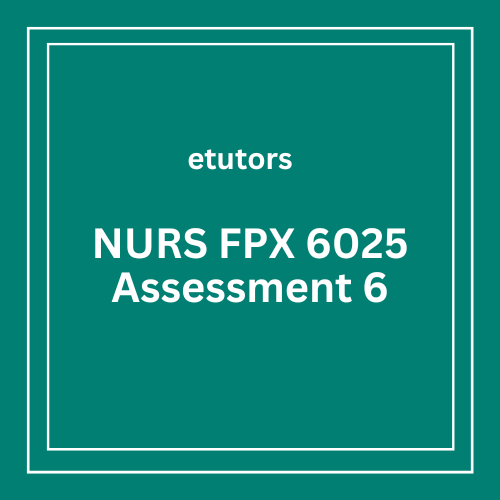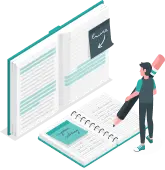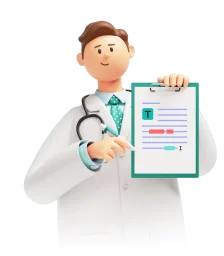Name
Capella University
NURS_FPX6030
Instructor’s Name
October 2024
Practicum and MSN Reflection
Pursuing the Master of Science in Nursing (MSN) program is the right start in implementing change in practice and nursing education. To this end, the program provides the key program learning outcomes of up-to-date clinical practices, leadership competencies, and knowledge that is relevant to practice settings in the healthcare field (Wang et al., 2022). Nevertheless, the practicum emerges as one of the essential parts of the MSN curriculum and affords a student a chance to implement curriculum theories in practice. The purpose of this paper is to establish the importance of the practicum in the MSN program and the extent to which it fosters personal development in advanced nursing practice and enhances the understanding of how the gap between education and practice may be closed.
Purpose of Practicum in MSN Programs
The practicum in the MSN program is aimed at enabling the student to apply theory in administrative as well as clinical settings. For students who choose a certain concentration, it will give them the ability and a chance to develop skills related to some of the fields like family practice, leadership, education, or nursing informatics (Smith et al., 2019). This applied practice opportunity allows learners to engage with experienced staff, take more supervisory roles, and play substantial parts in improving patient care and healthcare settings that surpass the early-level nursing positions (Solorzan et al., 2021). The practicum enables MSN students to find out key issues that affect the delivery of healthcare and how to implement advanced practice concerning evidence-based practice. Further, it provides a ground for students’ decision-making, policy formulation, and management of health care services, which is a very important factor for the preparation of nursing leaders.
Personal and Professional Growth During the Practicum
The practicum can be viewed as a challenging yet mutually beneficial experience for most of the MSN students. In turn, professionally it improves cognitive skills and problem-solving, and trains the students to be able to handle challenging clinical situations when they are in the medical practice (Su et al., 2021). In practicum roles, the students are required to assess the administrative systems and patient experiences to be able to develop a change in healthcare facilities based on what has been learned in class.
Further, the practicum fosters personal development since students meet tangible challenges to cope with in their personal and group endeavors (Su et al., 2021). Whether it is in tasks related to administration, direct patient care, or healthcare policies, confidence in their capacity by students as soon as upcoming healthcare leaders are attained (Tavares et al., 2021). We gain insight into their ability to lead, educate, actively implement alterations within the healthcare setting, and transform them into competent professionals equipped to meet the dynamic needs of the field.
Key Learning Experiences in Practicum
The practicum of the MSN program is dependent on a couple of great learning events. One of them is the development of the scope of clinical competencies as the one mentioned in the work of the above authors (Lin et al., 2021). Many countries expect advanced practice positions like clinical nurse specialists or nurse practitioners to work with other healthcare practitioners, execute physical examinations, participate in diagnosing patients, and undertake ailment of comprehensive (Zhu et al., 2021). The practical experiences build up the firm clinical skills that are required for the progression in a profession or vocation. Another important learning experience is modeling the capacity of the leader to become a role model. Students are usually afforded a chance to be either managers or supervisors through the practicum posts
whereby they may find themselves supervising nurses or involved in activities that aim at enhancing a certain health care. These make the students to hone leadership skills that are useful when progressing up the career ladder within the nursing profession and consist of communication, solving of conflicts, and working in groups.
Clinic and leadership practical experience and concerning the role of the clinic and leadership practicum for the personal professional development of the students who complete the practicums Clinic and leadership practical experience and concerning the impact of the clinic and leadership practicum concerning the application of EBP in the delivery of health care (Hampton et al., 2021). By gathering relevant research and controller data, in addition to designing superior models and programs, students gain a strong foundation from which to make appropriate decisions to benefit patients in their lives (Joseph et al., 2022). As the foundational model of the MSN program and the primary emphasis of that program, evidence-based practice equips the students to advocate for change to benefit quality and healthcare delivery.
Challenges Encountered During Practicum
Time Management Challenges
Despite the various advantages accrued to practicum experiences, students often encounter a lot of challenges, and among them is the inability to manage time properly. Combined with numerous academic tasks, clinical practice, and personal demands, the practicum experiences may be extremely challenging (Zhu et al., 2022). The coursework of an MSN program is rigorous; balancing this with student-employed work further complicates the situation. Lack of proper time management can lead to failure in the completion of certain essential formalities, inability to effectively engage in the practicum, and lack of healthy work-study balance that increases the levels of stress, and in certain circumstances, students may burn out fully.
Transitioning to New Roles
Another major issue is role transition, such as from student to nurse, from staff to expert, or from nurse to manager (Joseph et al., 2022). The switch from traditional PN education to this transformative model demands behavioral and cognitive change in that students are tasked with assuming more accountable roles, practicing clinical decision-making, and operating at higher cognition levels (Kaldheim et al., 2021). They are expected to exemplify leadership, cooperation in a multidisciplinary team, and patient advocacy. Coping with these changed roles can be challenging and the stress that accompanies the assumption of these roles can hinder their functioning and consequently limit their optimal functioning and benefits derived from their practicum placements.
Understanding Healthcare Systems
Health systems are challenging to manage and that is why students with an interest in administrative or policy organization careers face some of these challenges. The issues of management, financing, and policymaking can be quite complex, and confusing for a person who does not directly deal with these problems (Patterson et al., 2021). Healthcare organizations are complex and knowledge regarding how they function as well as the forces shaping policies is critical in these positions. Some students may also fail to understand the complex dimensions of healthcare and the systematic hindrances to fair treatment. Lack of these skills may prove detrimental to their capacity to participate in meaningful healthcare policy debates or effect meaningful change in their workplace.
The Role of Preceptors and Mentorship
Another responsibility of preceptors is to ensure that students include evidence-based practice as part of what they learn in the facility. They guide students to access both research and clinical procedures that will assist in filling the gap between academic knowledge and real-life applications; by urging the students to make decisions based on data (Joseph et al., 2022). But it also helps to improve the quality of care they deliver and helps to promote a better working environment and provision of continuous health care in healthcare organizations.
Further, through mentoring preceptors play an instrumental role in ensuring that MSN students learn the process of professional socialization and understand organizational politics in the work setting as well as inter-professional relationships (Patterson et al., 2021). They provide knowledge of how to approach people, how to avoid conflicts, and give students practical skills in successfully working in a team. This particular kind of mentorship helps students feel they belong to the profession and as such, the conversion to their roles as advanced practice nurses will be easier.
Reflection on the Impact of the Practicum
The practicum encounter is not just a training but has a paradigm shift impact in directing students and offering them time to think with and about their values, dreams, and career objectives (Cruz et al., 2022). Several learners learn the value of focusing on high-quality patient care, identifying approaches to improve the healthcare systems, or mentoring budding nursing professionals during their practicum (Grindle, 2021). Students blindly stare at job descriptions and organization practices once they are discharged with their practicums, sharpening their relationships within the nursing profession, clinical skills, or managerial skills. The practicum therefore ties all the parts of the MSN program and enables the students to be equipped for change-oriented careers in nursing.
NURS FPX 6025 Assessment 6 Conclusion
The practicum is one of the most important aspects of the MSN education since it gives students functions of real-life applications of advanced nursing knowledge. Of paramount importance in the development of transforming nursing students into professional health care professionals with appropriate skills and self-esteem that will enable them to practice effectively in the various areas of their choice (Kaur et al., 2020). From interactive sessions, the students gain the conceptual understanding as well as the skills thus placing them to transform the nursing profession and the healthcare sector. Thus, reflecting on their practicum experiences, MSN students can see what kind of effects their education produces not only to individual patients but also to the overall healthcare practice and such issues as the nursing shortage or development of evidence-based practice for instance.
NURS FPX 6025 Assessment 6 References
Cruz, A. A., de Godoy, S., Arena Ventura, C. A., Rodolfo Silva, Í., Santos de Almeida, E. W., & Costa Mendes, I. A. (2022). Reflections on nursing students’ fear and anxiety arising from clinical practicums, 40(3), e13.https://revistas.udea.edu.co/index.php/iee/article/view/351828
Grindle K. R. (2021). Impact of technology on community nursing during the pandemic. British Journal of Community Nursing, 26(3), 110–115.https://www.magonlinelibrary.com/doi/abs/10.12968/bjcn.2021.26.3.110
Hampton, K. B., Smeltzer, S. C., & Ross, J. G. (2021). The transition from nursing student to practicing nurse: An integrative review of transition to practice programs. Nurse Education in Practice, 52, 103031.https://www.sciencedirect.com/science/article/abs/pii/S1471595321000676?via%3Dihub
Joseph, H. B., Issac, A., George, A. G., Gautam, G., Jiji, M., & Mondal, S. (2022). Transitional challenges and role of preceptor among new nursing graduates. Journal of Caring Sciences, 11(2), 56–63.https://jcs.tbzmed.ac.ir/Article/jcs-30518
Kaldheim, H. K. A., Fossum, M., Munday, J., Johnsen, K. M. F., & Slettebø, Å. (2021). A qualitative study of perioperative nursing students’ experiences of interprofessional simulation-based learning. Journal of Clinical Nursing, 30(1-2), 174–187.https://onlinelibrary.wiley.com/doi/10.1111/jocn.15535
Kaur, G., Chernomas, W. M., & Scanlan, J. M. (2020). Nursing students’ perceptions of and experiences coping with stress in clinical practice. International Journal of Nursing Education Scholarship, 17(1), /j/ijnes.2020.17.issue-1/ijnes-2020-0005/ijnes-2020-0005.xml.https://www.sciencedirect.com/science/article/abs/pii/S0260691721001921?via%3Dihub
Lin, C. C., Han, C. Y., Wu, M. W., Hsiao, P. R., Wang, L. H., & Chen, L. C. (2021). Enhancing reflection on medical and surgical nursing among nursing students: A participatory action research study. Nurse Education Today, 102, 104935.https://journals.healio.com/doi/10.3928/01484834-20210322-08
Patterson, J. A., Chrisman, M., Skarbek, A., Martin-Stricklin, S., & Patel, S. E. (2021). Challenges of preparing nursing students for practice: The faculty perspective. The Journal of Nursing Education, 60(4), 225–228.https://journals.sagepub.com/doi/10.1177/1078390321994665
Solorzan, A. J., & De Oliveira, G. C. (2021). Workplace violence training programs for nursing students: A literature review. Journal of the American Psychiatric Nurses Association, 27(5), 361–372.https://journals.lww.com/neponline/abstract/2019/11000/retention_of_nursing_students__an_integrative.5.aspx
Smith, H. C., Wetmore, J. P., Conway, C., & McCarley, M. (2019). Retention of nursing students: An integrative review. Nursing Education Perspectives, 40(6), 328–332.https://www.sciencedirect.com/science/article/abs/pii/S1471595321001281?via%3Dihub
Su, J. J., Paguio, J. T., Masika, G. M., Wang, M., & Redding, S. R. (2021). Learning compassionate care: Experiences of nursing students. Nurse Education in Practice, 53, 103092.https://www.sciencedirect.com/science/article/abs/pii/S1471595321001281?via%3Dihub
Tavares, C. M. M., Pastor Junior, A. A., Paiva, L. M., & Lima, T. O. (2021). Innovations in the teaching-learning process of psychiatric nursing and mental health, e20200525.https://www.scielo.br/j/reben/a/vmH6N5PwVHYtjS7TVQtGJLz/?lang=en
Wang, X., Shen, J., & Chen, Q. (2022). Examining the needs-based time use of Chinese nursing assistants: A time-motion study. The Journal of Nursing Research: JNR, 30(6), e246.https://journals.lww.com/jnr-twna/fulltext/2022/12000/examining_the_needs_based_time_use_of_chinese.9.aspx
Zhu, Z., Xing, W., Liang, Y., Hong, L., & Hu, Y. (2022). Nursing students’ experiences with service learning: A qualitative systematic review and meta-synthesis. Nurse Education Today, 108, 105206.https://www.sciencedirect.com/science/article/abs/pii/S0260691721004639?via%3Dihub
Table of Contents
Toggle






